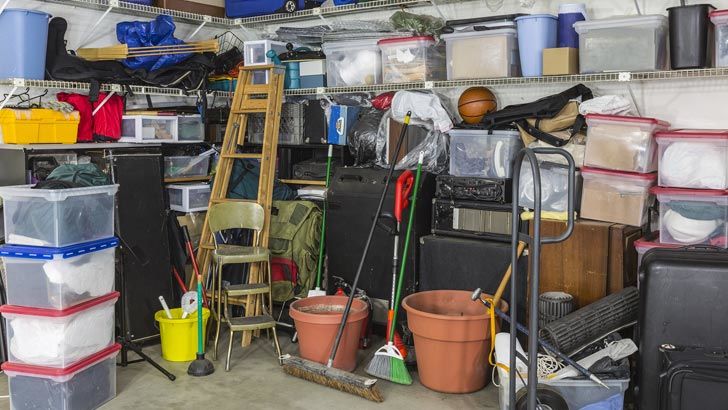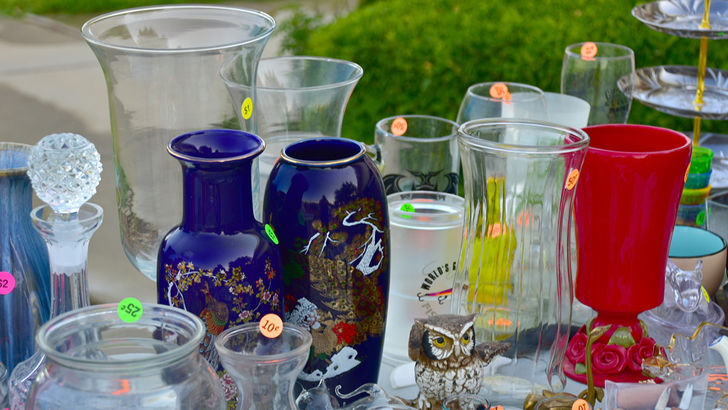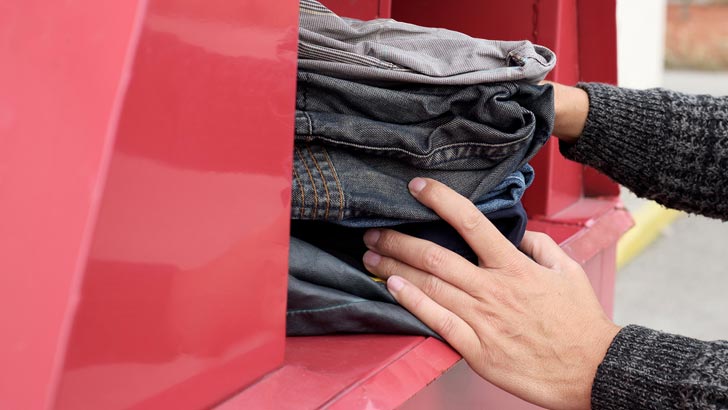What I learnt about money from Marie Kondo
By Serina Bird
Marie Kondo and the economics of tidying up
January is often the time that we declutter in our household. And this year, it feels as if everyone in Australia is doing the same.
When we took a few bags of clothes to the Salvos, the volunteer almost begged us not to gift too much.
"I don't know what is happening out there," she said. "But it seems like there is even more stuff being donated this January than usual. We are struggling to store it all!"
Aussies are Tidying Up With Marie Kondo
I knew what was happening - most of Australia was transfixed by the Netflix special, Tidying Up with Marie Kondo. And many charities are now so full of donations that they are unable to accept anything more.
I'd heard of Marie Kondo of course, with her Shinto-inspired feel the joy approach that has encouraged people to throw out half their house. After that Salvos visit, I made my husband sit down and watch three episodes with me.
The thing that drew us in, shocked and appalled us, was just how much "stuff" people have. I was mentally calculating how much it would have all cost - the clothes with brand new tags, the piles of electrical stuff in the garage, more clothes than kids could ever wear, and enough Christmas paraphernalia to deck out a department store.
And the thing that I identified with the most was how much clutter I acknowledge is still in my own apartment that doesn't bring me joy.
Downsizing to an apartment
I downsized two years ago from a four-bedroom house (with furnished granny flat, tool shed and miscellaneous junk pile under the house) to an inner-city apartment.
And my new husband downsized from a five-bedroom house on acreage with a shed (filled with junk his son had collected) that was larger than the entire apartment where four now live.
Yet somehow, over the past two years, my junk - our junk - has started to grow back again.
The downside of being a bargain hunter
While I'm not a hyper consumer, my problem is that I like a good bargain. I am semi-addicted to foraging for things at op shops, fetes and, even better, free things on the Buy Nothing Project. And if I am honest, I don't need everything I pick up.
The question now is - what do I do with it all? It used to be easy to just whack things in plastic garbage bags and take it to a charity. But these days, most op shops have so much stuff already.

How much would it fetch at a garage sale?
As I looked at the pile of clothes that hubby was donating to the Salvos, I was both proud and shocked. I was proud that he was so willing to get into the January decluttering thing, but also shocked that he was so willing to part with some quality clothes.
Right there in that pile was hundreds of dollars' worth of t-shirts, jeans, jackets, jumpers and work shirts. I don't know how much he paid for them new, but if I assigned an arbitrary price of $10 per item, it would have run into the hundreds.
My pile wasn't much better, although some of it was set aside to give to my sister and friends.
That's a lot of money, and obviously the best way to avoid this type of clutter creep is to avoid buying the stuff you don't need in the first place.
My mum has a saying that she uses when she finds something junky yet tempting in a shop: "how much would you get for it at a garage sale?" She's put on a few garage sales in her time, so she knows exactly what it is like to try to get rid of stuff.
And that's just it.
It all ends up as clutter
Much of what is marketed as the next revolutionise your life doo-dah is probably just going to end up as clutter that you would struggle to sell at a garage sale.
Think about what you often see at other people's garage sales. Think about how many vases, DVDs, old games, unread books and unopened gifts there are. How much will they sell for? $1? $5? $10? Probably not much more.
The moment something goes out of a store, unless it is a rare collectable item that you treasure, its value diminishes rapidly. The best saving you can make is often not to buy stuff you don't really want in the first place. And in my case, that goes for op shop items as well.
You can save a fortune by giving up the urge to buy stuff that you don't need. Rachel Smith, author of Underspent, saved $52,680 in 2014 when she decided not to buy anything new or second-hand for a year.
"I wasn't a shopaholic and I didn't have huge credit card debts, but like most people I was an impulse shopper - buying just for the sake of buying," she says.
How much could you save by not buying garage sale worthy junk?

But I paid good money for that!
It can be hard to let go of items when you know that you spent a lot of money for them. But there is a cost to holding onto things that you don't need.
Just think about the size of your house for one thing. Is it bigger than you need? Do you have a spare room or two filled with junk? Are you spending all day at work so that you can pay for your stuff to enjoy living in your dream home?
For the first six months after I downsized, I still had a lot of stuff to clear. The third room in my apartment was filled with "stuff", and I also paid $300 a month for an offsite storage unit. I had to make some hard decisions about what to do with items that I could no longer store. I gave away a lot.
But the result is that I no longer pay for storage - and I created space in my apartment to share with my new husband. It also means we can Airbnb the spare room; this paid for our wedding and a big family honeymoon cruise.
Our Airbnb can bring us around $10,000 a year, which is definitely worth much more than the books, desks, clothes and clutter that was stored in there before the big clean out.

Selling your stuff online
An obvious option is to sell your stuff. This works best with quality, niche items but sometimes you never know what people want. If you paid money for something, it is likely someone will pay money to buy it from you.
But unless you have rare baseball cards or a Rembrandt in your closet, you will probably sell your items for much less than you purchased them for.
How much can you earn online?
Some people earn a good income selling second-hand things online - some even report earning thousands each month - but my experience is that it takes a lot of time and effort for minimal returns.
Over the past year, I have sold wedding decorations, a spare oil heater, a no longer needed mountain bike and camping gear. I earned a few hundred dollars, but more importantly, my excess stuff went to someone who wanted them.
My Instagrammer friend Erna (aka @simplycheecky) is a petite Asian woman with a discerning taste for fashion brands. A few months ago, she decided to list no-longer-loved clothing on Facebook Marketplace. Within three months, she earned just over $1000.
"There is one Asian lady in particular who just loves my clothes and buys lots of items from me," she says.
That sounds like a lot of money but it doesn't factor in the cost of acquiring the items and the time taken to photograph them, describe them and then sell them. But it isn't a bad strategy for people who are in debt, especially if they have time on their hands.
Culling our clutter and moving away from our hyper-consumer culture requires time, persistence and patience. It also requires us to be mindful of what we purchase -- and keep - to make sure that our spending leaves us with lasting financial joy.
Get stories like this in our newsletters.



